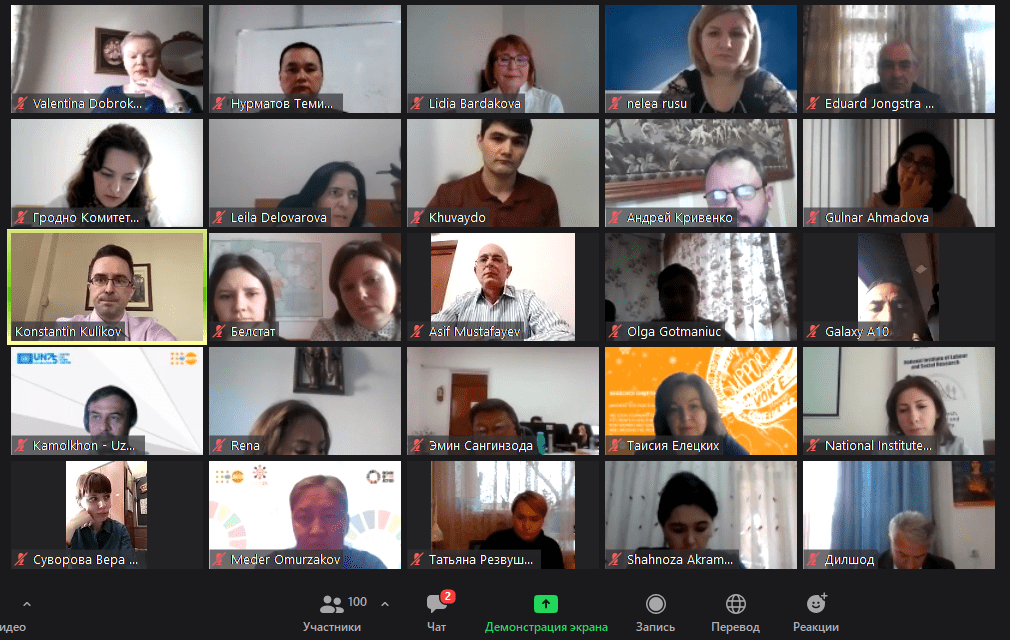A two-month intensive course on “Demographic resilience of the CIS countries” that will bring together 82 policymakers and civil servants from around the region with the support of UNFPA was launched today with an official online opening ceremony.
“The overarching aim of this course is to create a better understanding of what it means to be demographically resilient: to understand and anticipate the population dynamics countries are experiencing, and to have the skills, tools, political will and public support to manage them so that potentially negative effects can be mitigated and the opportunities that come with demographic change can be harnessed,” Alanna Armitage, UNFPA’s Regional Director for Eastern Europe and Central Asia, said at the ceremony.
The course is being organized by the Institute for Demographic Research of the Federal Centre of Theoretical and Applied Sociology of the Russian Academy of Sciences (IDR RAS) in partnership with the National Research University Higher School of Economics, Moscow State Institute of International Relations and Lomonosov State University. It is an integral part of UNFPA’s regional programme “CISPop: Better Data for Better Policies,” which is funded by the Russian Federation and UNFPA’s regional programme on Demographic Resilience.
Participants represent national economics ministries, labour ministries, national statistical committees, academic institutions and research centres in Armenia, Azerbaijan, Belarus, Kyrgyzstan, Kazakhstan, Moldova, the Russian Federation, Tajikistan and Uzbekistan. The course will enhance their capacity to understand demographic shifts and their implications, and to develop evidence-based policy responses.
Experts from IDR RAS and UNFPA developed the training course in partnership with demographers from leading Russian and international research centres and universities. The course programme includes comprehensive modules on past and present population trends; the concept of demographic transition; mortality and migration trends and patterns; and targets and indicators for population-based Sustainable Development Goals (SDGs).
Additionally, participants will discuss the implementation of the 2030 Agenda for Sustainable Development, as well as demographic aspects of the UN’s global commitment to leave no one behind.
Upon successfully finishing the course, participants will receive two certificates: a certificate of completion from the Institute for Demographic Research and UNFPA, and a State Certificate for advanced in-service training in public administration from the Russian Academy of Sciences.


